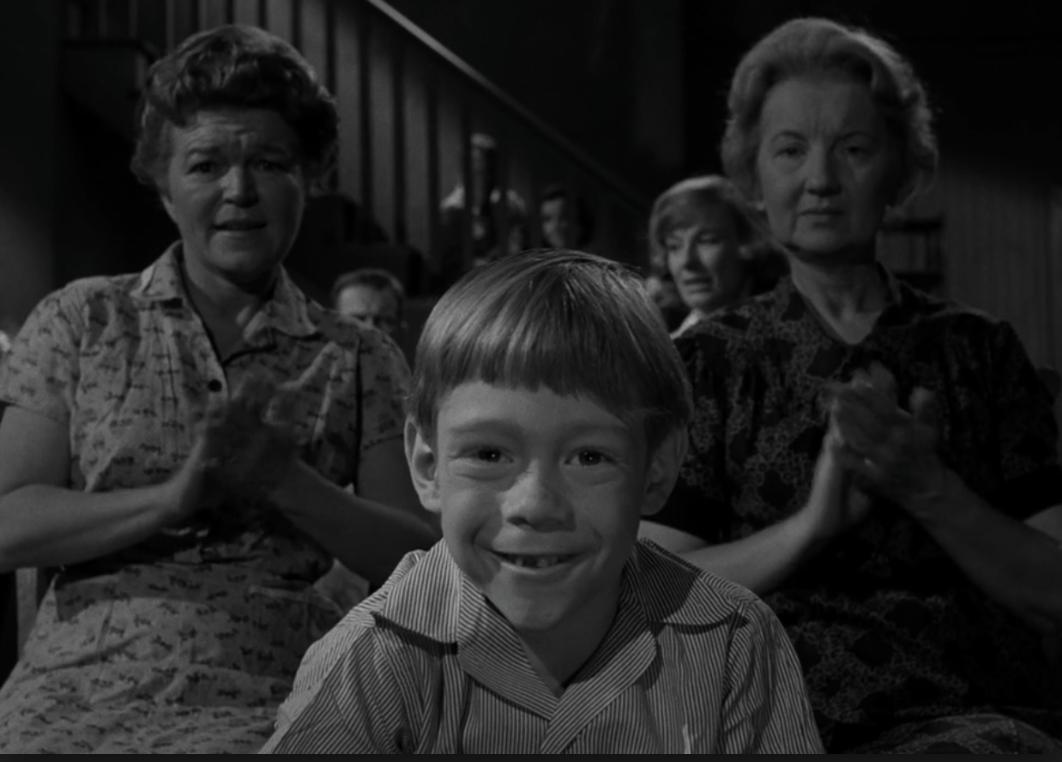Hollywood Elsewhere readers are requested to read a Hollywood Reporter piece titled “Critics’ Debate: What Is a ‘Sundance Movie’? 2019 Edition Broadens the Picture.”
It’s a discussion forum in which Todd McCarthy, David Rooney, Leslie Felperin, Jon Frosch and Beandrea July consider a few Sundance ’19 offerings.
Their comments frequently allude to the Sundance comintern platform — representation, diversity, political correctness, emerging female voices, LGBTQs, etc. They also cast subtle side-eyes in the direction of white-male filmmakers, who’ve been stinking up the joint for too many years.
Reaction from a journalist friend: “McCarthy reads like he doesn’t want to offend anybody. I understand his position, but that’s the thing about wokesters. Despite barely having any experience in writing, let alone cinema-watching, Beandrea’s resume is scant and only dates as far back as 2016 on Google, and yet she believes she has the authority to dictate what is right and wrong to veterans like McCarthy.
“Imagine if McCarthy, who’s been in the game since the ’60s and who made the definitive doc on cinematography (Visions of Light), spoke back to Beandrea about her opinions? She doesn’t care if he’s a film historian. He’s white and older and so she will set him straight.”
HE response: My impression is that McCarthy, Frosch, Felperin and Rooney sound like they’ve got loaded guns pointed at their heads. You can say what you think, fellas, as long as you don’t say the wrong things. McCarthy and friends are like that terrified family in that Twilight Zone episode, It’s A Good Life. Beandra and the wokesters are Anthony Fremont, and McCarthy, Rooney, Frosch and Felperin are the elders who are afraid to step outside the “happy” arena.
Rod Serling: “This particular monster can read minds, you see. He knows every thought, he can feel every emotion. His name is Anthony Fremont. He’s six years old, with a cute little-boy face and blue, guileless eyes. But when those eyes look at you, you’d better start thinking happy thoughts, because the mind behind them is absolutely in charge. For this is the Twilight Zone.”
Journalist friend again: “Throughout the fest I wanted journalists to be honest with me about why they thought this year’s program was lackluster, at least in terms of the narrative features. Almost all of them mentioned the fact that Sundance’s adamant stance on inclusivity was to blame. You won’t get these critics admitting this in print, of course, but many personally confessed that was a problem.”
HE commentary continues: Gold is where you find it, and that means the good stuff can come from anyone at any time, and from anywhere. Which is what the idea is behind emphasizing a focus on diversity, representation, more women directors, etc.
The problem for me is the comintern’s insistence that EVERYONE has to adhere to the general politically-correct party line. Like last year, Sundance ’19 was largely about identity, diversity and representation. That was the priority. Once that part was squared away, Sundance was content to deal with the films as they unfolded. A few were stand-outs. Some were interesting. Many were a chore.
Julius Onah‘s Luce was a major Sundance film for me. Because it has something. An idea. A certain integrity. A compact structure. No wasted dialogue or energy. Based on a play, I realize, but it hangs together. And yet the THR guys didn’t mention it.
Leaving Neverland, the Michael Jackson doc, was literally an IMPACT GRENADE, and yet the THR group ignored it. Is that because it’ll be on HBO in March? Aren’t 90% of this year’s offerings heading for streaming? How many Sundance ’19 films are going to have any kind of theatrical opening?
Gavin Hood‘s Official Secrets didn’t reinvent the wheel, but it’s very smart, efficient, pleasing and high-crafty in so many ways. No mention by THR gang.
I too found Cold Case Hammerskjold brilliant and bizarre and probably THE stand-out doc of Sundance. And I loved the raw and undiluted David Crosby: Remember My Name, which delivered the strongest emotional current of the whole festival. And I was knocked out by Memory: The Origins of Alien.
What about The Nightingale, The Hole in the Ground, Blinded By The Light? And did anyone have the slightest interest in High Flying Bird, the latest film by that giant of nervy, indie-minded cinema, Steven Soderbergh?
Journalist friend again: “I’m not so sure about Last Black Man in San Francisco. It’s visually inventive — director Joe Talbot has some major potential — but the story is so thin and uninvolving. Late Night was a competent romcom which shot many darts at middle-aged white men, but what hampered it, for me at least, was its step-by-step predictability. And I’m speaking as someone who LOVES Mindy Kailing.
“Narratively this year felt a little…off. And yet Sundance has turned into THE major world fest for documentary and that’s fine by me. Non-Fiction as an art form, and because we are living in an age of constant video and photo-taking, is expanding is much more interesting ways than non-fiction. This year’s crop was again astounding: Cold Case Hammerskjold, Untitled Amazing Jonathan Documentary, David Crosby, Midnight Family, Midnight Traveler, Ask Dr. Ruth, Knock Down the House, and those are just the ones that I’ve seen so far.”

